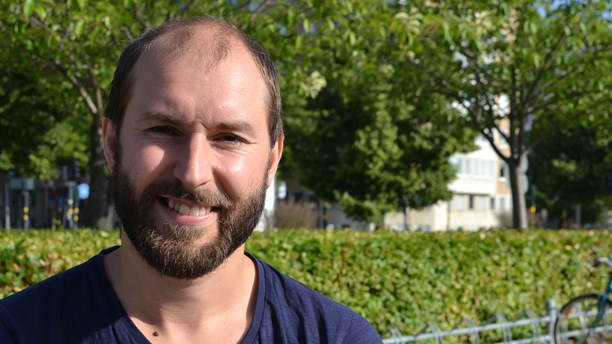 Philipp Lehmann is a researcher and lecturer at the department of Zoology, Stockholm University, Sweden. His main research topics include hypometabolism, energetics, cold tolerance, microclimate modelling and biological timing mechanisms. He has worked extensively with invasive pest insects, since invading insects often are excellent models to study basic processes in ecology and evolutionary biology. His main model organisms are the Colorado potato beetle, Leptinotarsa decemlineata, the pine processionary moth Thaumateopea pityocampa and the green-veined white butterfly Pieris napi.
Philipp Lehmann is a researcher and lecturer at the department of Zoology, Stockholm University, Sweden. His main research topics include hypometabolism, energetics, cold tolerance, microclimate modelling and biological timing mechanisms. He has worked extensively with invasive pest insects, since invading insects often are excellent models to study basic processes in ecology and evolutionary biology. His main model organisms are the Colorado potato beetle, Leptinotarsa decemlineata, the pine processionary moth Thaumateopea pityocampa and the green-veined white butterfly Pieris napi.
His interests also include the effects of climate warming on ectothermic organisms, and as part of a longer-term project entitled “The energetic consequences of climate change” together with C·I·B core team member John Terblanche, Philipp’s early 2018 visit to the C·I·B will focus on metabolic flexibility in biological invasions, thus delving deeper into the thermal physiology of the metabolic rates of invasive species against the backdrop of climate change. The metabolic flexibility is increasingly appreciated as important in driving large-scale shifts in biodiversity (including pest and invasive species), yet our understanding of temperature-metabolism relationships remains limited to a handful of model examples and a few fairly simple general rules. Therefore Philipp and his collaborators will measure metabolism across a range of temperatures and life-stages in several, both invasive and non-invasive insect species; use the resulting empirical data to produce a physiologically-informed conceptual and theoretical framework for understanding energetic consequences of climate change; and host a workshop on “Metabolic flexibility during biological invasions”.
